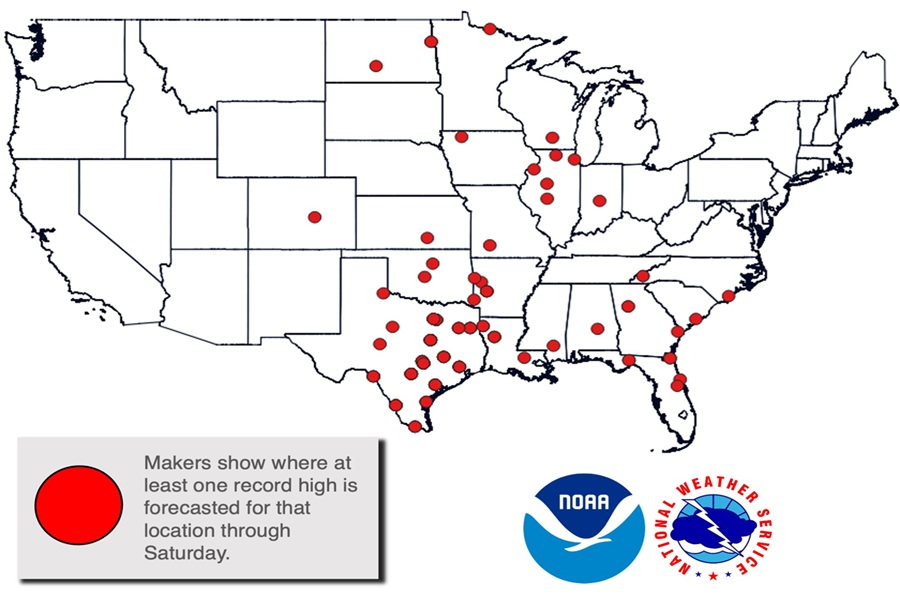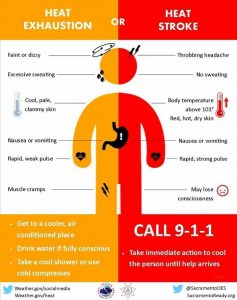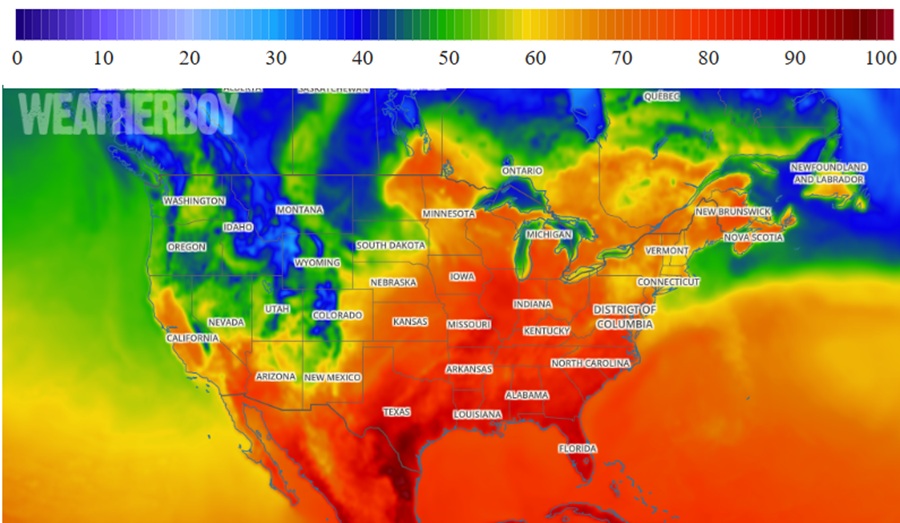
A blast of extreme heat is expected over portions of the United States over the next several days; so much so that the National Weather Service announced that they expect at least 70 record high temperature records to fall through Saturday across portions of the south from Texas to Florida as well as the area from Minnesota to Arkansas.
The National Weather Service warns that children, the elderly, and those with chronic illness are especially vulnerable to heat exposure. During extremely hot and humid weather, the body’s ability to cool itself is challenged. When the body heats too rapidly to cool itself properly, or when too much fluid or salt is lost through dehydration or sweating, body temperatures rise and a heat-related illness is possible.
The Centers for Disease Control and Prevention (CDC) provides a list of warning signs and symptoms of heat illness, and recommended first aid steps.

Heat Cramps
Heat cramps may be the first sign of heat-related illness, and may lead to heat exhaustion or stroke.
Symptoms: Painful muscle cramps and spasms usually in legs and abdomen. Heavy sweating.
First Aid: Apply firm pressure on cramping muscles or gently massage to relieve spasm. Give sips of water unless the person complains of nausea, then stop giving water. Seek immediate medical attention if cramps last longer than 1 hour.
Heat Exhaustion
Symptoms: Heavy sweating; weakness or tiredness; cool, pale, clammy skin; fast, weak pulse; muscle cramps; dizziness, nausea or vomiting; headache; fainting.
First Aid: Move person to a cooler environment, preferably a well air-conditioned room. Loosen clothing. Apply cool, wet cloths or have person sit in a cool bath. Offer sips of water. Seek immediate medical attention if the person vomits, symptoms worsen or last longer than 1 hour
Heat Stroke
Symptoms: Throbbing headache; confusion; slurred speech; nausea; dizziness; body temperature above 103°F; hot, red, dry or damp skin; rapid and strong pulse; fainting; loss of consciousness.
First Aid: Call 911 or get the victim to a hospital immediately. Heat stroke is a severe medical emergency. Delay can be fatal. Move the victim to a cooler, preferably air-conditioned, environment. Reduce body temperature with cool cloths or bath. Use fan if heat index temperatures are below the high 90s. A fan can make you hotter at higher temperatures. Do NOT give fluids.
